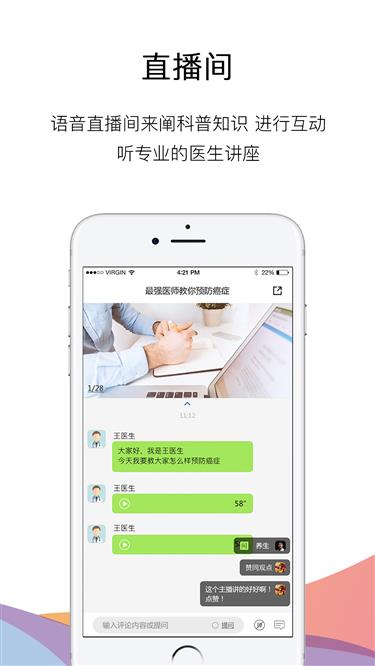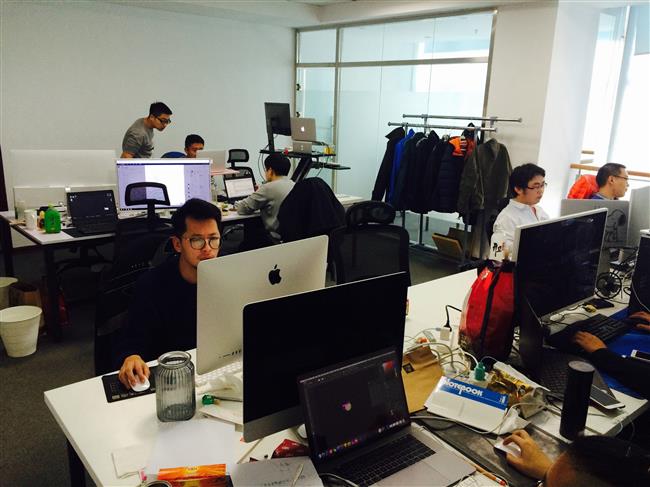Entrepreneurship takes aim at healthcare

Cao Yanlong’s Viodoc app connects doctors and patients, matching individual medical problems with specialists to try to avoid unnecessary trips to hospitals for treatment.
Technology seems to have overtaken every aspect of life nowadays. But the medical realm has been slow to adapt, according to one young entrepreneur.
Cao Yanlong says that failure still causes fundamental dysfunction in China’s healthcare system.
“That’s where we techies come in,” he says. “We are good at solving problems.”
Cao developed Viodoc, or “Feifan Yisheng,” an app that reduces dependence on traditional hospitals and improves communications between doctors and patients. It won this year’s bronze prize in the China Youth Innovation Entrepreneurship Competition APP Special Game.
“The way I see it, there are two reasons that have resulted in sharp conflicts in the medical system,” he says. “The first is that doctors face bloated caseloads and have low efficiency. The second reason is an information asymmetry between doctors and patients.”

Cao’s development team at Viodoc
According to the National Academy of Medicine, Cao says, there are 10,000 diseases and only 200 to 300 symptoms. The misdiagnosis rate in US was 5 percent in 2015.
“What’s ours?” he asks. “Doctors can specialize in treating some illnesses, but you have to be an encyclopedia to know how to cure them all. And most of the time, doctors are treating patients with illnesses that don’t match with their specialties.”
The result is low efficiency, he insists.
“Vital information is missing in doctor-patient communications and in people’s daily lives,” says Cao. “Chinese lack medical information to a painful extent. Just ask how many people know what to do when someone faints or chokes.”
And despite all the free clinics and advice sessions set up in local communities, many people still don’t know how to take care of their health.
“You don’t miss the water until the well runs dry,” says Cao. “Healthy people don’t pay attention to illness until it strikes them.”
Cao said Vicdoc offers a solution and a platform for doctors to share medical information online so they won’t have to hold lectures all the time and for patients to find information they need.
“When I talk about Vicdoc, doctors are the most supportive group,” he said. “We all know it’s easier to prevent a disease then to treat it.”
Information isn’t just power, it can also save lives.
“If it’s a rare illness and you don’t have access to a doctor who is an expert in that field, you die,” he said.
Cao believes Viodoc is a viable way to address what he calls a crisis in the medical system.
It’s not as if the government isn’t aware of problems. The State Council, China’s cabinet, has approved a guideline in 2011 aiming to increase the number of medical practitioners by 2020. Nationwide, the goal is to establish six hospitals per 1,000 people and to provide two to three general practitioners for every 10,000 residents in China. The government is also encouraging private clinics to open to meet growing demand for healthcare.
But Cao says the problem basically isn’t one of too few doctors or too few hospitals. He claims a major problem is that medical care provided by big hospitals is out of synch with smaller community hospitals.
“Would you go to a community clinic for treatment?” he asks.
He says we are entering an era where we need doctors but not necessarily hospitals.
“Hospitals are like boxes, a place to gather medical resources and a place for patients to visit,” he says. “It was the best solution before the Internet.
But just like we don't need offices to work nowadays, we don't really need hospitals.”
He adds, “That is why reform of the medical system isn’t working so far. They are trying to maintain the established system by copying hospital functions to mobile apps when a comprehensive change is needed. That isn’t happening.”
Cao has incorporated his ideas in his app. Downloaders answer detailed questions about their health, before artificial intelligence directs them to the most appropriate and specialized doctors, who will have comprehensive information on patients before making a diagnosis.
The app especially targets retirees, who tend to pay more attention to their health and can influence younger family members.
Launched at the end of October, the app is still in a testing period through the end of this year.
















